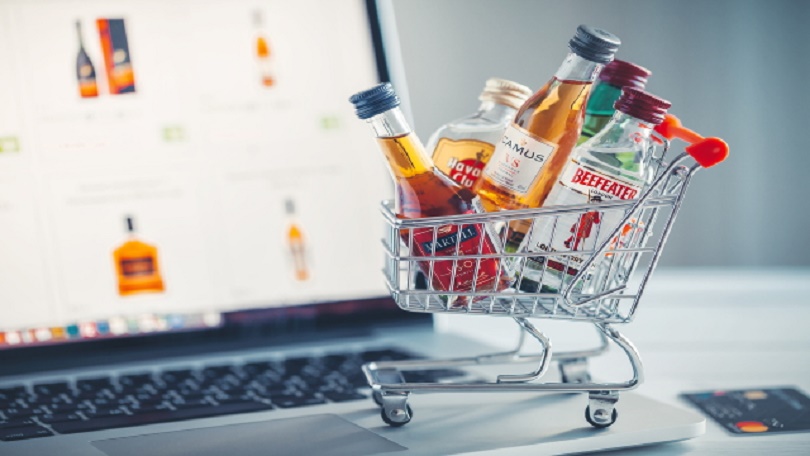Calls for mandatory age verification at point of alcohol delivery

UNSW public health researchers say there needs to be tougher laws to stop under 18s and those dependent on alcohol from easily buying liquor online.
The research, published by Drug and Alcohol Review and conducted mid-2019, found that 69 per cent of websites don’t verify the purchaser’s age; 12 per cent offer delivery within two hours and 13.8 per cent allow customers to purchase alcohol through a ‘buy now, pay later’ option.
Study co-author and UNSW Master of Public Health graduate Stephanie Colbert believes ‘buy now, pay later’ services should be banned as a payment option for buying alcohol online.
“This is creating new problems around minors accessing alcohol, the sale of alcohol to intoxicated persons and easy access to cheap alcohol – from A$2.88 for a 750mL bottle of wine, which is cheaper than a cup of coffee,” Colbert said.
“The liquor industry recognises they can get away with more online: a recent industry report about online alcohol sales stated, ‘Unlike many liquor related industries, the Online Beer, Wine and Liquor Sales industry operates under a low level of regulation and policy’.”
Researchers also found that 81.5 per cent offered discounts for buying more and there was no requirement for delivery drivers to hold Responsible Service of Alcohol (RSA) certification.
In 2019, Australia’s online alcohol sales were worth $569.4 million, which represents 4.6 per cent of total alcohol sales. Online sales averaged 14 per cent annual growth in the previous five years. Australian Bureau of Statistics figures showed there were 4,186 alcohol-related deaths in Australia in 2017.
“Many people would be shocked to find out that this is simply not the case and that’s why, based on our findings, we call for online standards to be just as tough as when you walk into a pub or a bottle shop,” said Robyn Richmond, co-author professor at UNSW School of Public Health and Community Medicine.
“There’s a misconception that a teenager needs to steal their parent’s credit card to make the purchase, but they can just use PayPal. Even if you type in the birth year of a minor before making a purchase on these websites, you can just go back and enter an adult’s birth year. There’s no way for them to actually check,” she added.
Colbert said that 9 of the 65 websites examined, 13.8 per cent, can buy alcohol through “buy now, pay later” schemes such as Afterpay or Zip Pay. They aren’t regulated under the National Credit Cod.
“We suggest that to reduce harmful drinking and financial stress among vulnerable customers, such as people with an alcohol dependency, ‘buy now, pay later’ services must be banned as a payment option for buying alcohol online,” said Colbert.
Colbert said that cheap or free delivery also lures consumers to buy alcohol online.
“It was also a concern to find that 69 per cent of retailers advertised a willingness to leave alcohol unattended at an address without having ever verified the purchaser’s age, which could give minors access to alcohol,” she said on Retail Drinks Australia’s (RDA) self-regulatory code.
Colbert said age verification at delivery should be mandatory for all online liquor shops and should have the same minimum RSA standards as physical liquor stores and online stores should not allow sales to minors.
“RDA claims they randomly audit signatories’ practices to gauge compliance, but how often they do this is unspecified – likely, it’s rare. Even if the RDA finds that a signatory company breached the code, the RDA just says they will contact the company and ask them to comply. The code stipulates signatories may be removed temporarily or permanently from the register only after repeated failure to comply. So, there are no real consequences,” she added.
Colbert said that there’s a need for further research to understand how aggressive online marketing tactics can influence the purchase and consumption of alcohol.
Retail Drinks boss disputes findings
Retail Drinks CEO Julie Ryan disputed the findings from the UNSW research saying Colbert was quick to allege that she doubts many audits are done as part of the Retail Drinks Code.
“Since UNSW made no attempt to contact Retail Drinks to ask about the Code or its audit, it probably says something about the rigour of their study that they make statements without attempting to research the facts,” she said.
Ryan said that any evaluation should be conducted with a thorough review of retailers’ delivery practices, stating that the “online website is only half of the transaction”. She said evaluating solely on the basis of a desktop audit of websites, without any reference to the delivery environment is “vastly inaccurate conclusions, which is the case in the UNSW study.”
Retail Drinks’ independent Code audit partner conducts over 200 mystery shopping audits each month to test if they complies with the Code.
Comment Manually
You must be logged in to post a comment.

No comments